The Myth of Hunting Pressure
I have had an idea rolling around in my head for some time, and I have finally gotten it to gel. I thought I would throw it up here, and have y’all comment on it.
First off, let me throw out two basic statements:
1) There is no such thing as hunting pressure when it comes to turkeys.
2) There are only a few days every season when gobblers are huntable by conventional methods.
Here is my reasoning for these statements.
I hunt a single 200-acre parcel in SW Bracken County, Kentucky. I will be starting my 21st season on the property this year. When I got there in 2001, I still had my head filled with the standard catechisms of turkey hunting. It took me most of the early years to get those ideas out of my head and start seeing things for myself. Chief among them was the idea of hunting pressure. If you look back at my writing at that time, you will see that I often attributed the frequent recalcitrance of the turkeys to hunting pressure. Indeed, I would go out on the Opener and hear a bunch of guns going off around me, and figure that had pretty well wrecked the birds for the season. I also had to deal with the reality that my place had previously been wide open to hunting for 20 years, and local folks thought of it as kind of an unoffical WMA. When I was not there, it was a favorite spot to go. Over time that changed, but the turkeys did not.
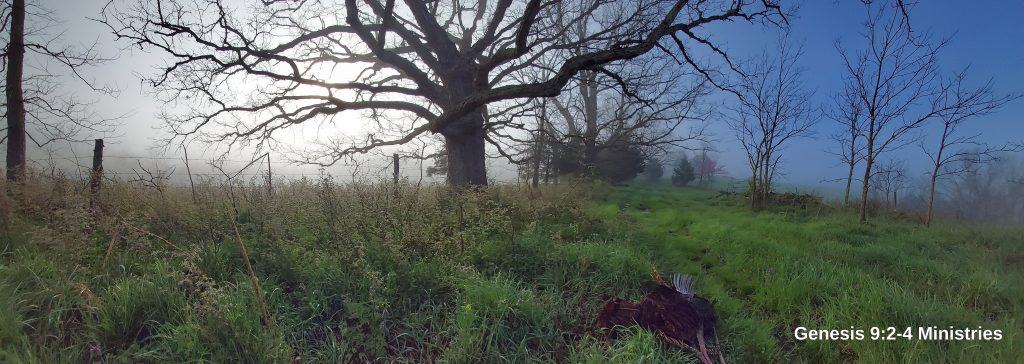
My main reason for coming to believe that hunting pressure is illusory is that I have realized turkeys have very little memory. I have a great spot on the back of the house, and we can sit out there and listen to turkeys on the roost as well as see turkeys out in our pastures. Even though we are out there day after day and night after night, we continually have close encounters with turkeys. In one episode, I had three gobblers come inside 100 yards of the house three nights running. The dominant gobbler and two acolytes came up the main N/S road and came closer every night only to suddenly discover my family enjoying Happy Hour on the back of the house. The experience was fresh to them each time, and they showed complete surprise and utter terror. Those sorts of things happen all the time at our place. I cannot count the number of times I have come in from scouting or hunting to find fresh gobbler tracks crossing mine in the curtilage. I do not think turkeys have the capacity to brain out the idea of a string of similar events having a pattern. If they do, it is far more attenuated than our own.
I do not mean to say that turkeys do not clam up and adjust their habits. I am just saying hunters do not cause it as much as we think. What does cause it? I am not sure. Bear with me while I explain my second statement.
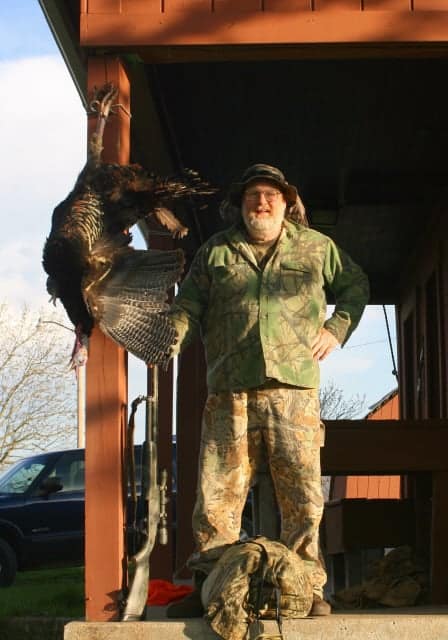
I have never been enamored with my own calling prowess. Some folks think I am a pretty good caller, but I always feel like I am like a foreign tourist stumbling with a phrase book. I need to find the toilet and I end up asking for the nearest brothel. Accept that assessment for a moment. Take it as given that I am not that great a caller. There are still a few days out of the season where I can bring them in on a string. How can this be? I have called up gobblers while suffering from what turned out to be pneumonia, coughing hard enough to pass out. I have heard of fellows calling in gobblers with a rusty nail and a flower pot. How can this be? My assessment is that there are only a few days out of the season when gobblers get this way. On those days, nearly anything will work. The rest of the time nothing works. A skillful caller might be able to squeeze a couple of extra days out of a season, but the turkeys are either going to come or not. Mostly, they are not going to come. That is how the illusion of hunting pressure works its way into our minds.
I have 3-4 active groups of turkeys on my place during season. I say groups, because there are more than 1 flock involved in each group. They act somewhat independently of each other. That is to say the group at the north eastern corner of the farm my be “ON” while those on the southwest may be “OFF.” The effect of being “ON” can be very localized. In talking with my neighbors who hunt properties away from our ridge, I know that my turkeys can be totally OFF while turkey as little as a few miles away can be ON. If you are a normal sort of hunter, it would be easy to ascribe this to hunting pressure. What happens when you go out and find the turkeys in an OFF mode? You go elsewhere, right? For some, it means going to a different farm or different WMA. For some, it means packing off to the next state.
However, what happens to that OFF property? I only hunt that one 200 acre plot, so I am stuck with finding out that answer. What I find is that once you remove the idea of hunting pressure from the mix, you see something far more complicated. Flocks and gobblers do not get wrecked for the season in that way. Instead, they may switch back ON at any time. It can be very limited too. I have seen it be bad in the morning and then get hot in the afternoon. I have seen one end of the farm dead while the other is seething with turkey lust.
I have gotten a lot of flak over the past few years as I tried to state these ideas. Guys will tell me I’m crazy. One fellow did so and then went on to say that he would go out and take the turkey’s temperature and if it was not to his liking, go home and drink coffee. Isn’t this what I was just saying? I have also had fellows claim they could call in a gobbler any day during season. It was just knowing how, and then come up with a list of exceptions and provisos a mile long explaining why they did not and could not bag a bird every time they went out. Top of these guys’ lists are funky weather and hunting pressure. For me, that sounds like point and match.
What can ON be like? Usually, I can say that for where I am, these ON episodes are most likely to occur before our spring season usually starts. Kentucky does not allow calling before season, but I have had gobblers run across the field, because they heard my knees and boot tops moving in the leaves. I have had a flock of gobblers come to me and go into full strut while I was sitting on a boat cushion, drinking coffee in a field. I have seen lone gobblers roaming the fields gobbling down the tops of hollows. This is that early breeding season just after the big late winter super flocks break up. After that, the switch from OFF to ON can happen any time. In general, I find warmer-than-usual days are the most likely. However, I’ve seen it happen after a late-season snow with 25 MPH winds. Go figure.
Assume what I am saying is true, what difference does it make? The biggest difference is once you remove hunting pressure from your list of assumptions, the possibility of hunting heavily hunted grounds makes sense. Just because you drove out to one plot or one WMA and heard nothing the Monday after the Opener does not mean that place is played out for the rest of the season. It might turn ON at any time. If you buy into what I am saying, it means you have to be content to be satisfied with a couple-three days a year to hunt with conventional “by calling alone” methods or think about something else. For me, I will not call it “ambushing,” because it is not. However, most days I try to set up where I think turkeys are going to come later in the day and then wait. I call, but location and set-up are my primary focus. The most important thing is to not give up. A given property may turn ON on any given day. It should not find you at home watching Netflix.
One other thing my theory means is that the idea of hunting a mature gobbler may not be such the great feat we claim. If you look back on my weblog, you will see I have my share of 2 year-olds, jakes, and a few old veterans. Truth told, the old ones got fooled just as quickly and completely as the sophomores. Their ON switch was just as certain. I am not saying there are not wary turkeys out there, but I think they could be wary by nature and not experience.
Please feel free to rip this theory apart. I’d love it it if someone set me straight.
This post has already been read 466 times!
Views: 5
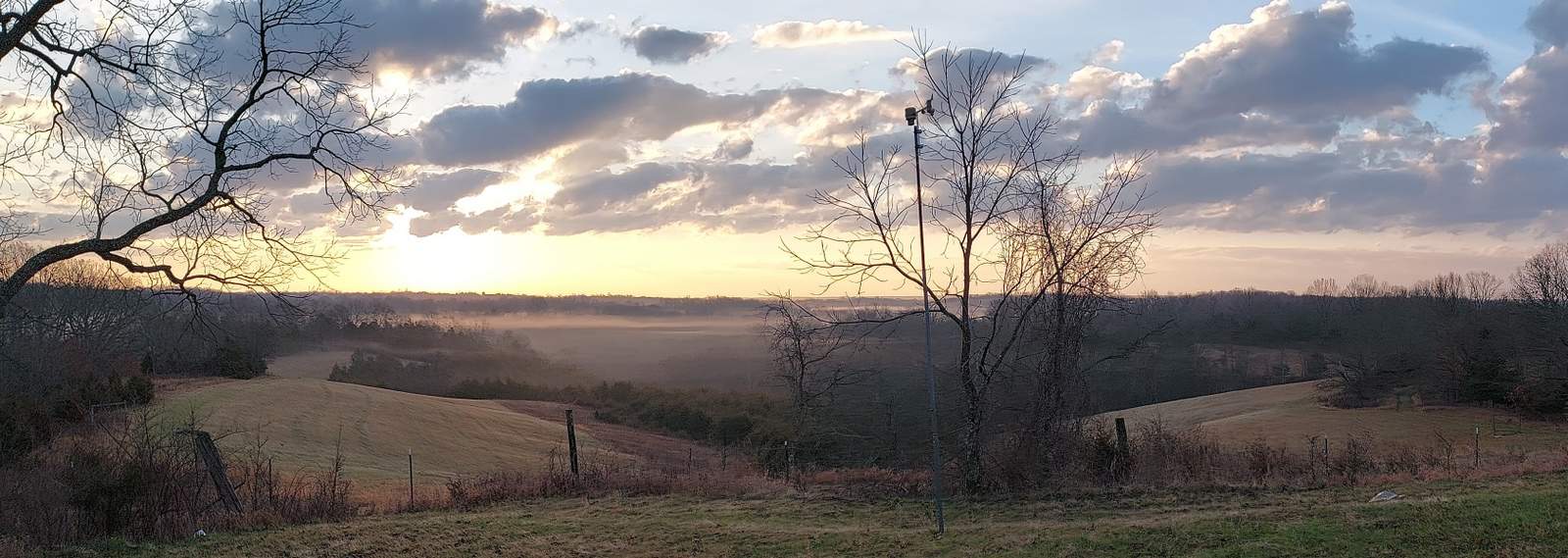
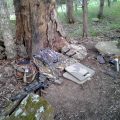
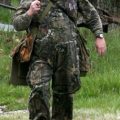
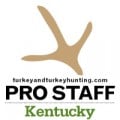
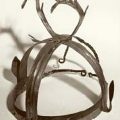


Comments
The Myth of Hunting Pressure — No Comments
HTML tags allowed in your comment: <a href="" title=""> <abbr title=""> <acronym title=""> <b> <blockquote cite=""> <cite> <code> <del datetime=""> <em> <i> <q cite=""> <s> <strike> <strong>